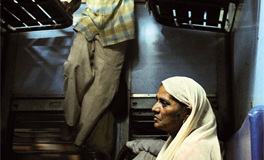Transforming India’s approach to cancer care
In India, a country with a vast population and a diverse socio-economic fabric, healthcare remains fraught with challenges including disparities in access. These socio-economic disparities are deep, and
In India, a country with a vast population and a diverse socio-economic fabric, healthcare remains fraught with challenges including disparities in access. These socio-economic disparities are deep, and
New Delhi: Your fear about excessive use of mobile phones causing serious health problems was not ill-founded after all. Months after World Health Organization classified radiofrequency electromagnetic field (EMF) as ‘possibly carcinogenic to humans’, another global report has redflagged the use of such technology, citing health risks, including growth of brain tumour and loss of fertility in men. BioInitiative 2012 — which is a collaborative effort by 29 authors from 10 countries, including the chair of the Russian national committee on non-ionizing radiation, a senior adviser to the European Environmental Agency and two professors from Jawaharlal Nehru University, Delhi — calls for a review of public safety limits.
The Supreme Court on Monday issued notice to the Centre on a public interest writ petition against licensing of and trials with the unproven human papillomavirus (HPV) vaccines, ostensibly to treat cervical cancer. The petition, by Kalpana Mehta and other health activists, cited the Drugs Controller-General of India (DCGI), the Indian Council of Medical Research and others as respondents. It said Gardasil and Cervarix were hazardous HPV vaccines marketed in India by MSD Pharmaceuticals Pvt. Ltd. (a subsidiary of Merck) and GlaxoSmithKline Ltd.
The Supreme Court on Monday sought the Centre’s response on a PIL accusing multinational pharma giant Glaxo Smithkline of having conducted unauthorised trials of its cancer vaccine on tribal girls. A bench headed by Justice KS Radhakrishnan, while seeking reply from the health ministry, also directed the Christian Medical College, Vellore, to examine the medical records of the seven girls who have allegedly died during such trials, and submit a report to it.
Scientists at the Indian Institute of Science (IISc) have discovered a new molecule that, they say, could potentially lead to an anti-cancer drug, which may help reduce the dosage of current treatment methods like chemotherapy or radiotherapy. The molecule, aimed at killing cancer cells by blocking their DNA repair mechanism, was successful in removing tumours in mice during laboratory experiments, say the researchers. The team is now evaluating offers to collaborate, including one from a US-based pharma company, for further research and clinical trials. Typically, the road to market for a new molecule can take at least a decade.
Its healthcare system crippled by international economic sanctions, Iran has asked India for help to procure life-saving drugs for patients battling critical illnesses in that country. Tehran has put in an urgent request to New Delhi for drugs to treat lung and breast cancers; brain tumours; heart ailments; infections after kidney, heart and pancreas transplants; meningitis in HIV patients; arthritis; bronchitis and respiratory distress in newborns; and epilepsy, South Block sources told The Indian Express.
Prof. A. Ajayaghosh, a scientist with the National Institute for Interdisciplinary Science and Technology, has won the Infosys Prize 2012 in physical sciences for his pioneering research in the field of supramolecular architecture. This research can play a key role in early cancer diagnosis and in the early detection of the presence of different kinds of explosives. Explaining the details of this innovation, Prof. Ajayaghosh explained, “We assemble molecules using weak forces in order to create different kinds of architecture in varying sizes and shapes. This special class of molecules, called pi-systems, can communicate with each other and when they do so, they undergo a change in their properties which can be utilised for different applications.”

<p><span id="itro1">This first ever state-wide survey of cancer victims in Punjab has revealed high incidence of cancer in the Malwa belt, even as the cancer cases in the state are only a little more than
London: A woman from Liverpool, who was suffering from an incurable liver cancer, was saved by using a tissue from a cow’s heart to rebuild her liver. Michelle Morgan-Grainger became one of the first

<p><span id="itro1">Prolonged exposure to radiation from cellphone towers, other wireless technologies can cause imbalance in immune system, metabolism, reproductive system warns this report by the BioInitiative
Most food items contain toxins like mercury, pesticides and acrylamide that can affect children in the long run Even healthy food like fruit, vegetables, meat and fish might be putting children’s health at risk. These food items also contain toxins like mercury, pesticides and acrylamide that can, over a long time, make children vulnerable to cancer and affect their nervous and reproductive systems. This is the finding of a study on effects of 11 such food-borne toxins on people of different age groups in the US, carried out by researchers from the University of California, Davis, and University of California, Los Angeles. Irva Hertz-Picciotto, professor and chief of the division of environmental and occupational health at University of California, Davis, says toxins in food affect children the most as their brains and other organs are still developing.